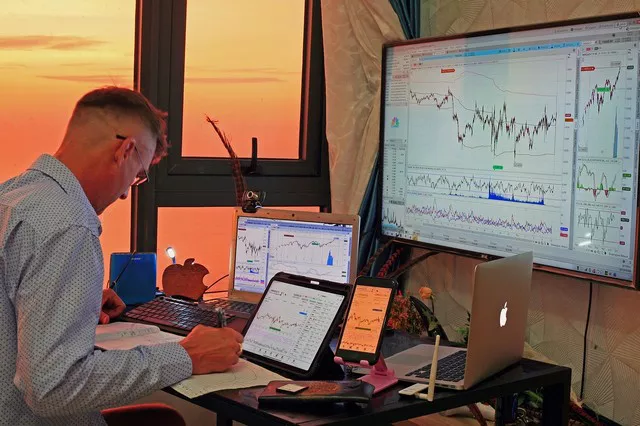Futures trading has long been associated with commodities such as crude oil, gold, and agricultural products. However, as financial markets evolve and new investment instruments emerge, the question arises: can you do futures on stocks? In this article, we delve into the concept of futures trading on stocks, examining its feasibility, implications, and potential benefits for traders and investors looking to diversify their portfolios and capitalize on price movements in the stock market.
Understanding Futures Trading on Stocks
Futures trading on stocks involves buying and selling standardized contracts that obligate the buyer to purchase or sell a specified quantity of shares of a particular stock at a predetermined price and date in the future. These contracts are traded on organized exchanges, such as the Chicago Mercantile Exchange (CME) or the Intercontinental Exchange (ICE), and are designed to provide investors and traders with exposure to price movements in individual stocks or stock indices. Futures contracts on stocks are similar to those on commodities or financial instruments but are based on the price of underlying stocks rather than physical assets.
Feasibility of Futures Trading on Stocks
While futures trading on stocks is technically feasible, it is less common and more complex than futures trading on commodities or financial instruments. The primary reason for this is that stocks are individual securities issued by publicly traded companies, each with its own unique characteristics, performance, and market dynamics. Unlike commodities or financial instruments, which have standardized contracts and centralized exchanges, stocks are traded on multiple stock exchanges worldwide, each with its own rules, regulations, and trading hours.
However, despite the challenges and complexities associated with futures trading on stocks, there are ways for investors and traders to gain exposure to stock price movements through futures contracts. One approach is through stock index futures, which are futures contracts based on the performance of a stock index, such as the S&P 500, Dow Jones Industrial Average, or Nasdaq Composite Index. By trading stock index futures, investors can gain exposure to a broad portfolio of stocks and track the overall performance of the stock market without the need to trade individual stocks.
See Also: Does Binance futures have spreads?
Implications and Considerations
Futures trading on stocks carries several implications and considerations for investors and traders seeking to participate in this market. One key consideration is the level of risk associated with futures trading, particularly when trading individual stocks or volatile stock indices. Futures contracts are highly leveraged instruments, meaning that small price movements in the underlying stocks can result in significant gains or losses for traders. As such, traders should assess their risk tolerance and trading objectives before engaging in futures trading on stocks and implement risk management strategies to mitigate potential losses.
Additionally, futures trading on stocks requires a solid understanding of the stock market, including fundamental analysis, technical analysis, and market dynamics. Traders should conduct thorough research and analysis of individual stocks or stock indices before entering into futures contracts to assess their potential for profit and risk exposure. Moreover, traders should stay informed about corporate earnings announcements, economic indicators, geopolitical events, and other factors that may impact stock prices and influence trading decisions.
Furthermore, liquidity and trading volume are important considerations when trading futures contracts on stocks. While some stock index futures, such as those based on major stock indices like the S&P 500 or Nasdaq 100, may have sufficient liquidity and trading volume to support active trading, futures contracts on individual stocks may have lower liquidity and trading volume, leading to wider bid-ask spreads and increased transaction costs. Traders should carefully evaluate liquidity conditions and trading volumes before entering into futures contracts to ensure efficient execution and minimize slippage.
Potential Benefits of Futures Trading on Stocks
Despite the challenges and considerations associated with futures trading on stocks, there are several potential benefits for investors and traders. One advantage is the ability to gain exposure to the stock market and diversify investment portfolios without the need to trade individual stocks. By trading stock index futures, investors can track the performance of a broad market index and capitalize on overall market trends and movements.
Moreover, futures trading on stocks offers flexibility and versatility in trading strategies, allowing traders to implement various hedging, speculation, and arbitrage strategies to capitalize on price differentials and market inefficiencies. Whether seeking to hedge against downside risk, speculate on bullish or bearish trends, or exploit pricing anomalies, futures trading on stocks provides a range of opportunities for traders to profit from stock market fluctuations.
Conclusion
In conclusion, while futures trading on stocks presents challenges and complexities, it is technically feasible and offers opportunities for investors and traders to gain exposure to the stock market and capitalize on price movements in individual stocks or stock indices. By trading stock index futures, investors can track the performance of a broad market index and diversify their investment portfolios without the need to trade individual stocks. However, futures trading on stocks requires careful consideration of risks, market dynamics, liquidity conditions, and trading strategies to achieve success. With proper research, analysis, and risk management, investors and traders can harness the potential of futures trading on stocks to enhance their trading performance and achieve their investment objectives in the dynamic and ever-evolving stock market landscape.


